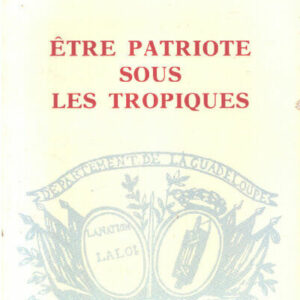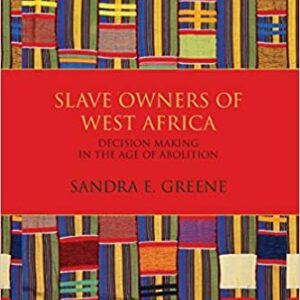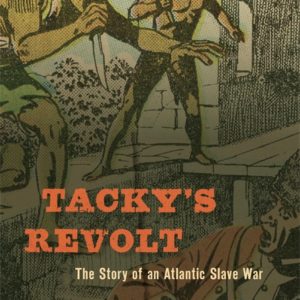
Être patriote sous les tropiques: la Guadeloupe, la colonisation et la Révolution (1789-1794)
By Anne Pérotin-Dumon (NHC Fellow, 1980–81)

By Anne Pérotin-Dumon (NHC Fellow, 1980–81)

By Sandra E. Greene (NHC Fellow, 2007–08; 2014–15) In this groundbreaking book, Sandra E. Greene explores the lives of three prominent West African slave owners during the age of abolition. These first-published biographies reveal personal and political accomplishments and concerns, economic interests, religious beliefs, and responses to colonial rule in an attempt to understand why … Continued

By Rebecca J. Scott (NHC Fellow, 2010–11) Around 1785, a woman was taken from her home in Senegambia and sent to Saint-Domingue in the Caribbean. Those who enslaved her there named her Rosalie. Her later efforts to escape slavery were the beginning of a family’s quest, across five generations and three continents, for lives of … Continued

By Vincent Brown (NHC Fellow, 2011–12) In the second half of the eighteenth century, as European imperial conflicts extended the domain of capitalist agriculture, warring African factions fed their captives to the transatlantic slave trade while masters struggled continuously to keep their restive slaves under the yoke. In this contentious atmosphere, a movement of enslaved … Continued

By John Hope Franklin (Trustee; NHC Fellow, 1980–81; 1981–82) Steven Marcus discusses Freud's famous cases "Dora" and "The Rat Man," as well as the Freud–Fliess correspondence, the Three Essays on the Theory of Sexuality, and the evolution of Freud's notion of the superego. Through his close reading of various of Freud's theoretical and clinical texts, … Continued

By Elizabeth Fox-Genovese (NHC Fellow, 1984–85) The Mind of the Master Class tells of America's greatest historical tragedy. It presents the slaveholders as men and women, a great many of whom were intelligent, honorable, and pious. It asks how people who were admirable in so many ways could have presided over a social system that … Continued

By Monika Trümper (NHC Fellow, 2008–09) This book critically examines the existence and identification of purpose-built slave markets in the Graeco-Roman world from a cross-cultural perspective. It investigates whether certain ancient monuments were designed specifically for use as slave markets and whether they required special equipment and safety precautions, allowing them to be clearly distinguished … Continued

By Laura F. Edwards (NHC Fellow, 2007–08) In the half-century following the Revolutionary War, the logic of inequality underwent a profound transformation within the southern legal system. Drawing on extensive archival research in North and South Carolina, Laura F. Edwards illuminates those changes by revealing the importance of localized legal practice. Edwards shows that following … Continued

By David Patrick Geggus (NHC Fellow, 1989–90) The Haitian Revolution of 1789–1803 transformed the Caribbean's wealthiest colony into the first independent state in Latin America, encompassed the largest slave uprising in the Americas, and inflicted a humiliating defeat on three colonial powers. In Haitian Revolutionary Studies, David Patrick Geggus sheds new light on this tremendous … Continued

By Daina Ramey Berry (NHC Fellow, 2007–08; 2008–09) In life and in death, slaves were commodities, their monetary value assigned based on their age, gender, health, and the demands of the market. The Price for Their Pound of Flesh is the first book to explore the economic value of enslaved people through every phase of their lives—including … Continued